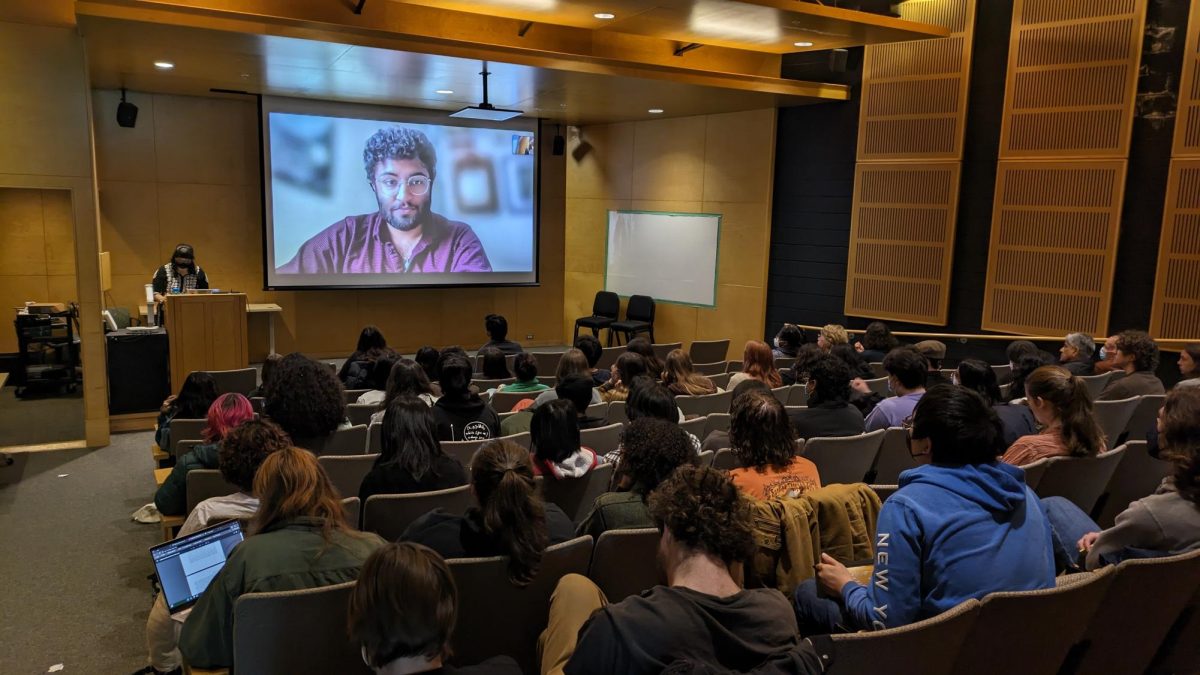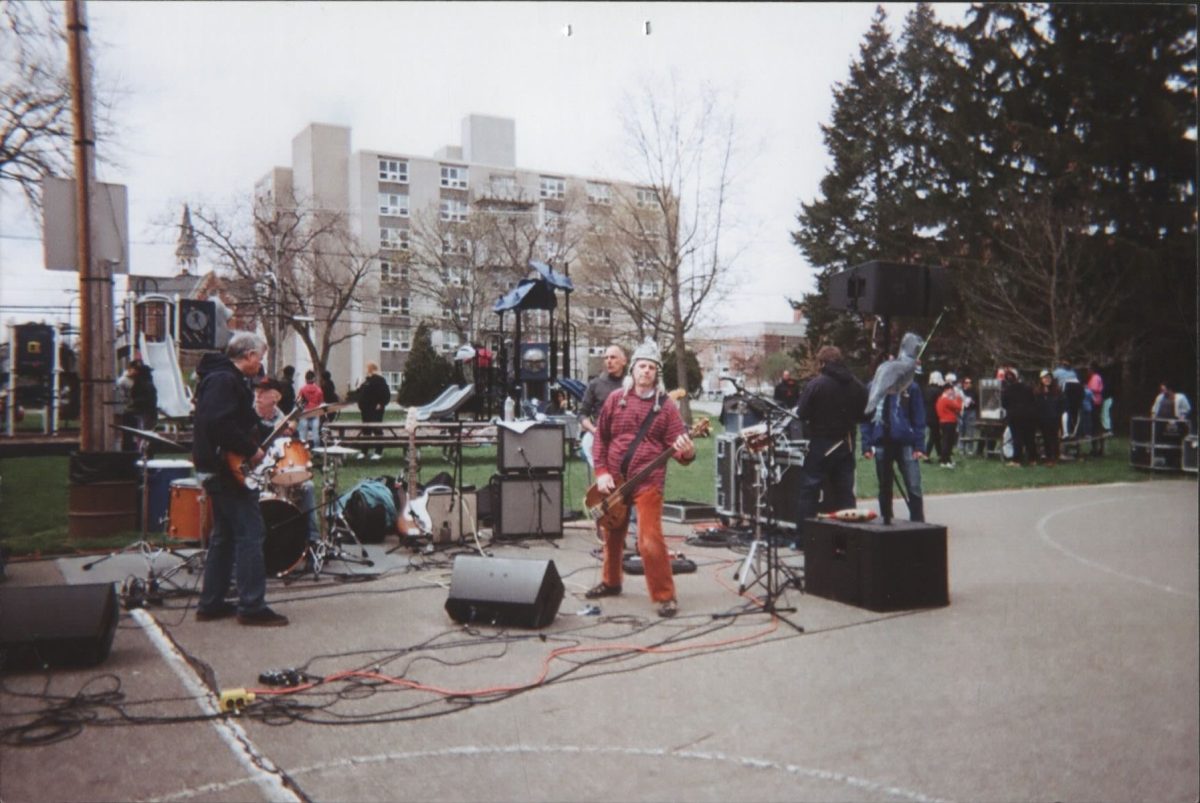Domestic Partnership Policy Invasive, Exclusive
September 4, 2015
Two things happened in my life last May, within weeks of each other: I proposed, and my fiancée graduated. She decided to live in Oberlin. I decided to live with her.
Technically, we could have gotten married already. We might have even been able to manage it the day I proposed if we had borrowed a car. But we’d decided to wait until after I got out of college in spring 2018. We were engaged, anyway, ring and all; we’d made our intention to marry as clear as possible. How hard could convincing the school of that fact be?
I want to note that every person I interacted with from ResEd was absolutely lovely. Over the course of the summer I got polite responses to my panicked and probably incoherent emails at all hours of the day. The process was probably as painless as it could’ve been. It’s just that the people who make this system chose to create a process that is inherently painful and invasive.
Oberlin’s domestic partnership policy recognition application is used for off-campus housing and dining exemptions for “same-sex” partnerships. The only information ResEd offers openly is what you shouldn’t do with a housing exemption. Numerous warnings pepper the policy, explaining that DP is not a “loophole” for students to abuse in order to excuse themselves from the restrictive housing and dining requirements.
Some parts of the web page are almost charmingly nonsensical. Statements like “It is not for students who are in serious (engagement type) relationships, only those wishing to formalize and celebrate a life-long commitment to one another,” raise the question of what, exactly, the administration thinks an engagement demonstrates an intention of doing. The rest is far less charming.
Under the heading “What does the community say about DP?” students were quoted only in order to preemptively accuse the applicant of abusing the policy they apparently loved.
The worst of these was, “Abuse of this policy is an insult to [our LGBTQ community] and to our struggles to achieve a more just society for people of all sexual orientations,” wrote Heather West, OC ’97.
These quotes assume that the default use of the DP policy must be with a dishonorable intention, not for those who actually wish to uphold the policy — queer couples. I don’t blame the alumna for that, to be clear. I blame the system that taught them that constant suspicion of other LGBTQ people keeps them safe from homophobia and transphobia.
The assumption of cisgender, monosexual queerness — “gay and lesbian marriages” to be exact — was as ever present in the policy as it was unsurprising. ResEd was under no obligation to include transgender students when most people forget that equal marriage is a trans rights issue for straight trans people as well.
Tentatively, I sent the first of many, many emails. My fiancée and I were technically allowed to marry, if we both misgendered the other. But due to the protracted legal battles that transitioning would involve (legal names and correct genders, for example), we were still functionally unable to marry. Would we qualify? They said yes.
The website doesn’t have any of the instructions on how to actually get a domestic partnership exemption; all the space is taken up by telling you not to try. Thankfully, the first person who replied to my emails sent me the requirements list. I read it and balked.
ResEd wants at least one document from each of two lists. Category one requirements included durable power of attorney, a will bequeathing personal property to one another as determined by state law or an insurance policy naming one another as beneficiary, among others. Category two included a lease or verification of co-habitation for six months prior to the date of application or evidence of joint credit cards, among others. The last line of the list of paperwork requirements is, “Or as the sole document: Evidence of a domestic partnership/marriage document from a state, city or municipality.”
After the stressful process of acquiring all documents, I received an email saying that our request had been approved around an hour after we dropped the paperwork off. Technically, it would be approved pending additional information; we still needed a credit card with both our names on it, and that was at the mercy of the U.S. Postal Service. But for every meaningful purpose, we were done.
A couple of days later, the card we needed arrived. I ran to the ResEd office to show it off. Everyone was all smiles, including me. It was finished. We’d won.
On my way out, I remembered to ask how the College was going to refund my family the housing and dining fees, which is how I found out that getting this exemption means the College reconsiders my financial aid package — all of it.
Would it have changed my decision to try to live off-campus? I don’t know. At no point during that process did anyone tell me I was jeopardizing my scholarships. All I can do now is refresh PRESTO daily and hope things turn out.
When I set out to write this article, I braced myself for people to ask why I was complaining. After all, our case had been approved. On some level, I was already asking myself that. Why wasn’t I happy to have cleared all the hurdles between me and the opportunity to wake up in the morning next to the woman who will be my wife?
I couldn’t make myself be thankful for the fact that I’d managed to, by pure luck, match the administration’s criteria for what a truly important queer relationship must look like. They require that “students affirm that they are one another’s sole partner.” For my polyamorous friends to make the same request as me would require perjury.
Ironically, the ResEd site states that this policy is an answer to bans on equal marriage in Ohio. This seems to be where the invasive character comes from: a belief that a domestic partnership is an inferior substitute for marriage. As a supposed favor to the unfortunate queer, the College takes it upon itself to audit whether or not I can be trusted to eventually get married — love, longevity of partnership or literal engagement ring aside. It’s obvious that they presume the answer is no.














